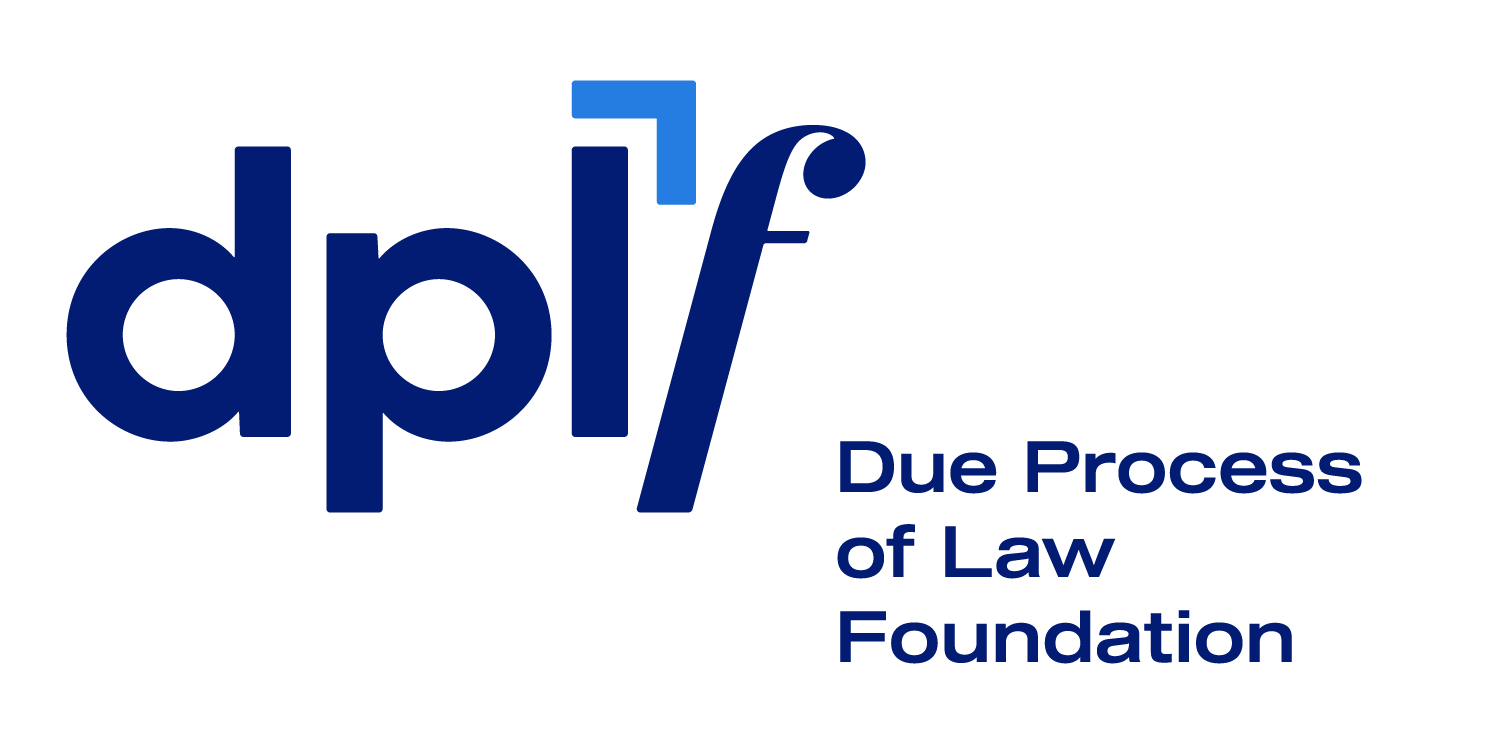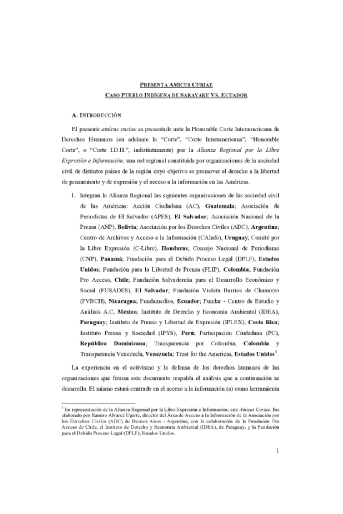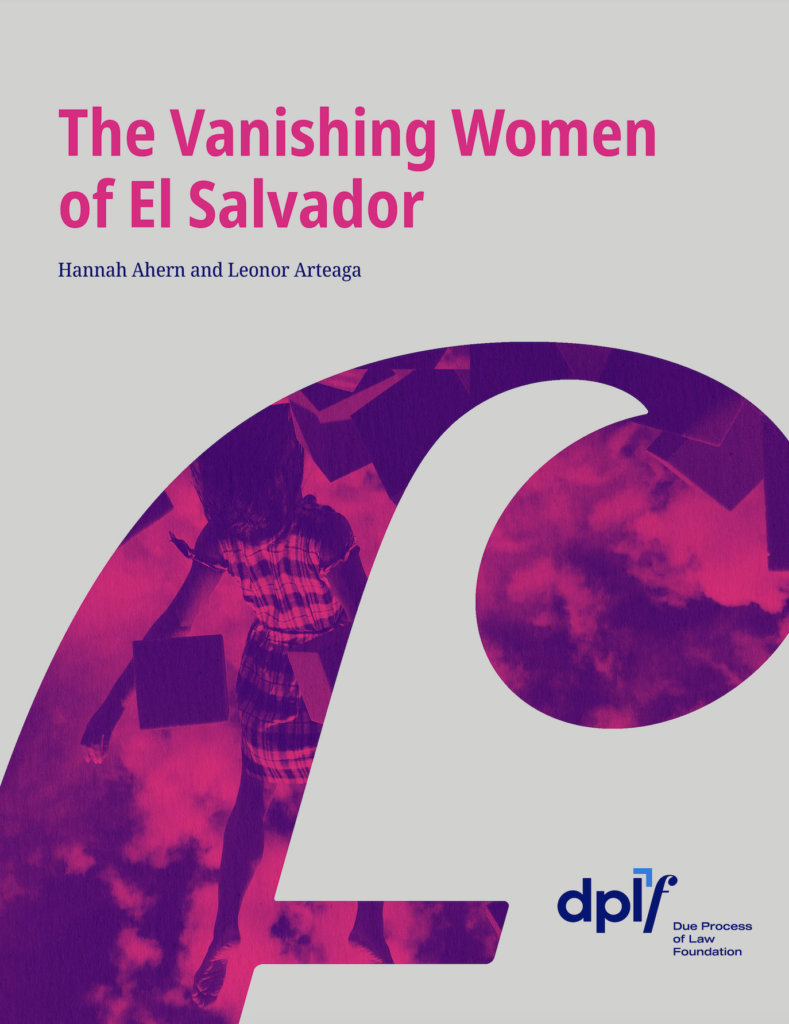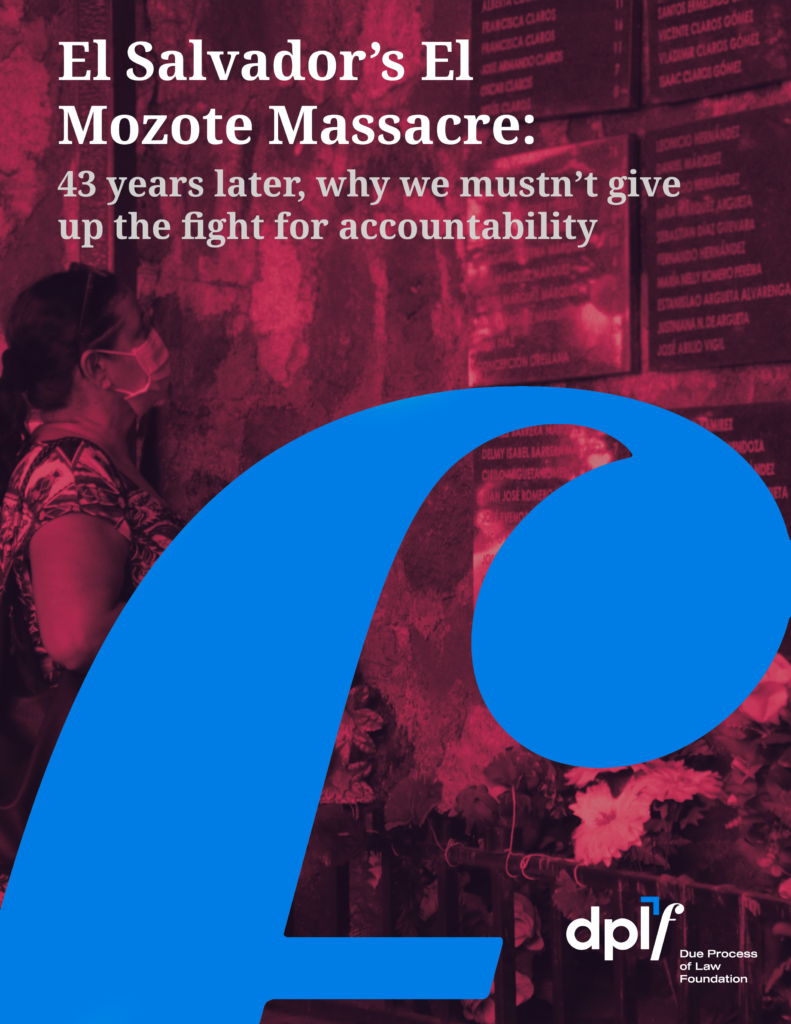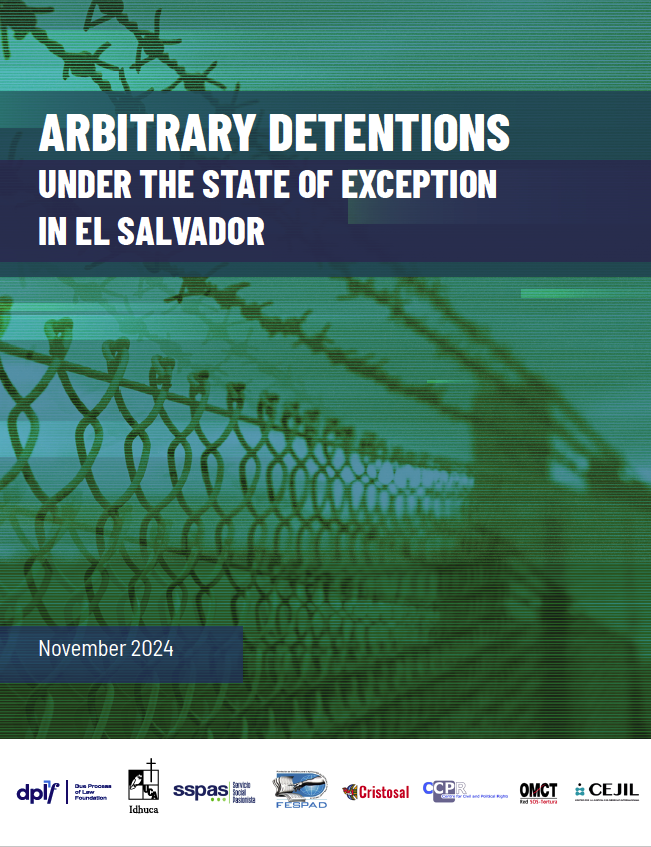The amicus is presented in the case Sarayaku vs. Ecuador, and centers around the requirement of active transparency that falls on the State
The member organizations of the Regional Alliance for the Freedom of Expression and Information – of which DPLF forms part – presented an amicus curiae before the Inter-American Court of Human Rights, in the case of the Kichwa Indigenous Peoples of Sarayaku vs. Ecuador. The amicus is centered around the processes of active transparency that the Ecuadorian government has disregarded in the aforementioned case.
Sarayaku is a Kichwa settlement found in the southern Amazon region of Ecuador. In 1992, the Ecuadorian government allotted the Kichwas their land through the Institute of Agrarian Reform and Colonization. The conflict originated in 1996 when the Argentine company “Compañía General de Combustibles” received a concessional agreement from the Ecuadorian State giving permission to explore for oil in the southern region where the Kichwa were living, in the community of Sarayaku.
The amicus curiae that was presented stipulates that within the context of social conflicts, like those between States, indigenous communities and companies active in extractive industries that are registered in various countries in the region, the right to access of information, imposes special obligations on the state to provide active transparency. When states do not comply it effects these communities participation in the decision about the industrial projects that have the potential to effect their land, quality of like and their sustainability
The Regional Alliance considers that a real and appropriate access to information, presented in a clear and simple manner, is an essential requirement so that all habitants, in this case, indigenous communities, can freely give their consent on the development of an industrial project in their territories. This can only happen after an open and transparent process of information and deliberation, so that the previously mentioned consent is given in the conditions that are required by international human rights law.
